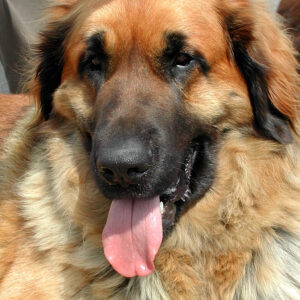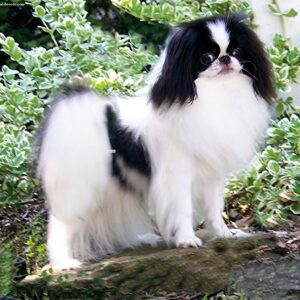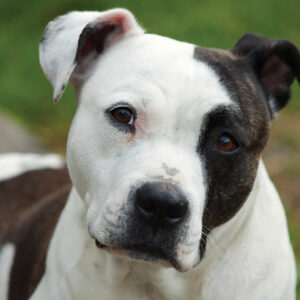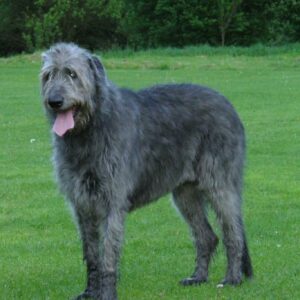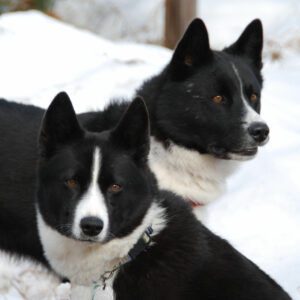The English Bulldog is a popular breed among dog-lovers, with their characteristic wrinkled faces and muscular build. In this post, we will go over everything there is to know about this lovable breed, from their history to their unique physical traits, as well as tips on how to choose the best foods, training, and taking care of your English Bulldog.
History
The English Bulldog has a rich history that dates back centuries. Originally bred for bull-baiting, a cruel sport in which a dog was pitted against a bull, they were prized for their strength, tenacity, and fearless nature. However, bull-baiting was banned in the 1800s, and the breed was on the brink of extinction. Fortunately, a group of devoted breeders worked tirelessly to preserve the breed, and in the early 1900s, the English Bulldog was recognized by the American Kennel Club.
Today, the English Bulldog is a beloved family pet, known for their gentle and loyal nature. They are a popular breed in the United States, with many owners appreciating their laid-back and affectionate temperament.

Image Source: Urban Dog NYC
Location of Origins
The English Bulldog originated in England, where they were bred for bull-baiting. They were popular among gamblers and ruffians, who would often bet on the outcome of the fights. Although this practice was cruel and barbaric, bulldogs were highly valued for their strength and tenacity.
Today, English Bulldogs are found worldwide, with many owners appreciating their unique personality and physical traits. They have become a mainstay in popular culture, appearing in movies, television shows, and advertisements.
Characteristics
The English Bulldog is a stocky, muscular breed, with a distinctively wrinkled face and heavy jowls. They have a short, smooth coat that comes in a variety of colors, including brindle, fawn, and white. They are a medium-sized breed, typically weighing between 40 and 50 pounds, and can stand up to 16 inches at the shoulder.
English Bulldogs are known for their friendly and easy-going personality. They are loyal and affectionate, making them excellent family pets. They are also highly adaptable, and can thrive in both urban and rural environments.

Image Source: Eat Sleep Walk
However, despite their lovable nature, English Bulldogs do have their quirks. They are notorious for their stubbornness, and may require patience and persistence when it comes to training. They are also prone to health problems, including hip dysplasia, respiratory issues, and skin allergies.
Choosing the Best Foods
Choosing the best food for your English Bulldog is essential to their health and well-being. They require a balanced diet that is rich in protein, vitamins, and minerals. There are many high-quality dog food brands on the market, but it is important to read the label carefully and select a brand that does not contain fillers or artificial preservatives.
In addition to commercial dog food, English Bulldogs can also benefit from fresh fruits and vegetables, such as carrots, green beans, and sweet potatoes. These foods provide essential vitamins and minerals, and can also help to improve their digestion.

Image Source: PetMD
It is also important to monitor your English Bulldog’s weight, as they can be prone to obesity. Overfeeding can lead to a host of health problems, including diabetes and joint issues. Always consult with your veterinarian if you have any concerns about your English Bulldog’s diet or weight.
Training
Training an English Bulldog can be a rewarding experience, but it does require patience and persistence. Due to their stubborn nature, they may be difficult to train at times, but positive reinforcement methods can be effective. Reward-based training methods, such as clicker training and treats, can help to motivate your English Bulldog and encourage good behavior.
Consistency is key when it comes to training an English Bulldog. They thrive on routine and structure, and can become easily discouraged if training sessions are inconsistent or haphazard. A firm but gentle approach is important, as they may become defensive or aggressive if they feel threatened or intimidated.

Image Source: YouTube
Socialization is also an important aspect of training for English Bulldogs. They may be wary of strangers or new environments, and early exposure to a variety of people, animals, and situations can help to build their confidence and reduce anxiety.
Taking Care of Your English Bulldog
English Bulldogs require regular grooming to keep their coats healthy and clean. They shed moderately, but their wrinkles and folds can trap dirt and moisture, which can lead to skin infections. Regular baths and brushing can help to prevent skin problems, as well as keep them smelling fresh and clean.
Dental care is also important for English Bulldogs. They are prone to dental issues, such as gum disease and tooth decay, which can lead to health problems if left untreated. Regular teeth-brushing and dental checkups can help to prevent these issues and keep your English Bulldog healthy.
/image-580e85bb5f9b58564c125e61.jpg)
Image Source: The Spruce Pets
Exercise is also an important aspect of taking care of your English Bulldog. They may not require as much exercise as some other breeds, but they do benefit from daily walks and playtime. Engaging in physical activity can help to keep them mentally and physically stimulated, as well as prevent health problems associated with obesity.
FAQs
What should I feed my English Bulldog?
Your English Bulldog requires a balanced diet that is rich in protein, vitamins, and minerals. Consult with your veterinarian to determine the best food for your pet.
How often should I take my English Bulldog to the vet?
Your English Bulldog should have regular checkups at least once a year, but may require more frequent visits if they have specific health issues.
Is training necessary for my English Bulldog?
Yes, training is essential for your English Bulldog’s health and happiness. A well-trained dog is more confident and less anxious, and is less likely to develop behavior problems.
Conclusion
The English Bulldog is a beloved breed with a rich history and a lovable personality. Despite their quirks, they make excellent family pets and are highly adaptable to various lifestyles. By following the tips outlined in this post, you can ensure that your English Bulldog is healthy, happy, and well-behaved. Remember to consult with your veterinarian if you have any concerns about your pet’s health or behavior.

